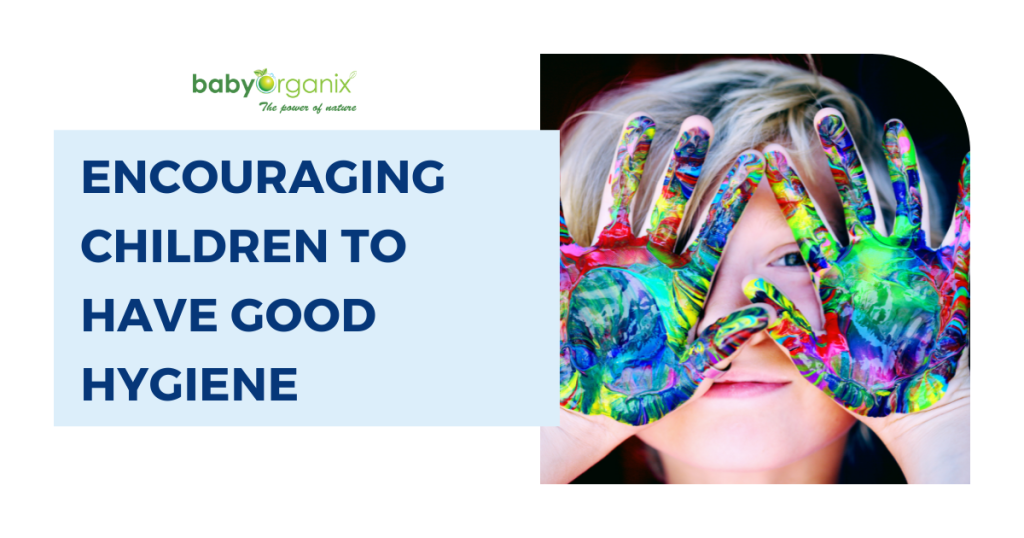Latest News
BabyOrganix | Encouraging Children to Have Good Hygiene
Why We Must Have Good Personal Hygiene?
There is a saying “tidy house, tidy mind”. This saying is correct because effective nurturing helps to shape a child’s view and personal habits. Learning the importance of self-hygiene practices helps to stop the spread of diseases, and encourages children to develop lifelong hygiene habits. This cannot be denied with the current pandemic. Regularly washing our hands can make a difference between getting an infection and staying safe!
Having a proper self hygiene routine and habits help in protecting our immune system from being affected by germs and bacteria. A study has shown that people with cleaned houses are healthier than people with cluttered houses. So keeping ourselves spotless is not an obsession, it is a safety measure, a standard that everyone should have.
Staying organised can be a lot of work. This is why having the discipline to do so is necessary. When our children are away from our sight, whether it is in the classroom, playground or simply by themselves; we want them to have awareness of his or her hygiene. By teaching children the importance of personal hygiene, we can help reduce disease.
Positive Development of Cleanliness and Hygiene
Other than fighting against the threat of germs and bacteria, BabyOrganix believes that development of hygiene in children creates a sense of security and safety. They learn how to stay wonderful and fresh. Other great outcomes of being clean bring good social interaction and give pleasantness to people around them too.
Learning self hygiene skills boosts a child’s confidence. It shapes their independence and the need to do things on their own. While learning how to wash their hands, brush teeth, minor house chores and cleaning, they’re also tuning gross and fine motor skills, sensory processing, language comprehension and the ability to follow simple tasks.
BabyOrganix Guides to Teach Good Hygiene Habits
There are several practices that you can start to teach your children. These are:
- Washing Their Hands
Children who are beginning to care for their own toilet needs and who spend time with other children in a kindergarten/school setting can easily spread all sorts of germs. Make sure they know when to wash their hands with water or sanitiser such as-- before eating or preparing food
- after touching pets and animals
- after blowing their nose, sneezing or coughing
- after going to the toilet
- Shower
Children need to have a daily shower. Twice a day at least. You could encourage a shower after their daily routine or playtime. Make sure your children wash all of their body areas, including armpits and their genital areas. Remember to get their body thoroughly dry before they get dressed. - Fresh and Clean Clothes
Even when their clothes don’t have odour, children need clean clothes everyday. Clean underwear is especially important. Dirty clothes can attract microorganisms, and can lead to skin infections. Dirty underwear with residue of urine and faeces make infection more likely to happen if it worn again without washing.
